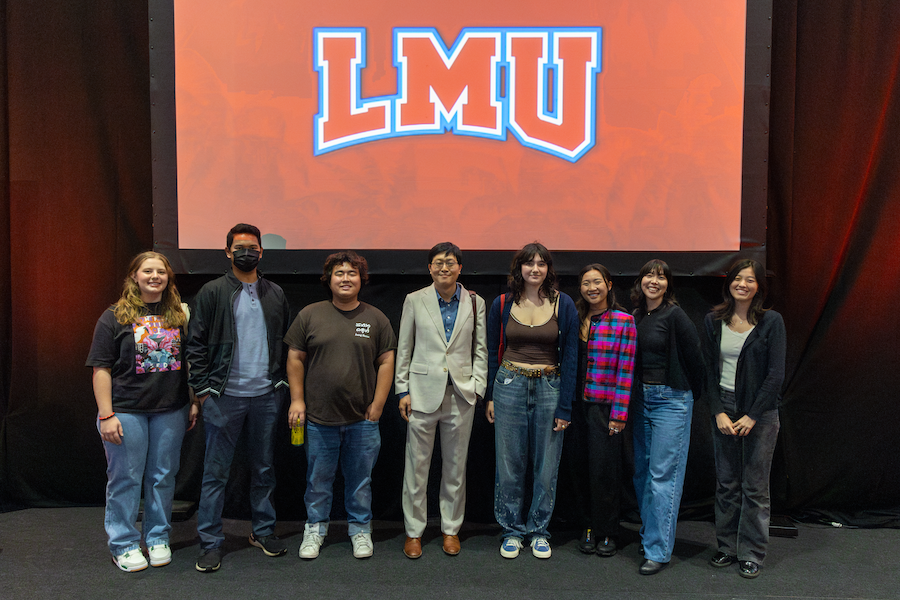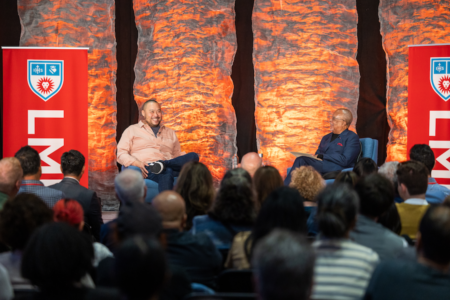
I think I’ve inherited this awful habit from my mother. Sometimes, I put something important in my calendar, and I forget about it. “Global Conversations with Henry Louis Gates, Jr. and David Chang” sat highlighted in my calendar for two weeks with multiple reminders. I often make it a priority to attend events that Heangjin Park, assistant professor of Asian and Asian American studies, recommends in our “Food in Asia, Asia in Food” class because food has played an intimate role in the way that I interact with my Korean heritage. Taking a course dedicated to deciphering the more significant issues behind food enticed me. Feeling distanced from my mother tongue, but being able to identify nostalgic flavors and cultures actively makes me feel more connected to my Asian American identity.

During the conversation between Henry Louis Gates, Jr. and David Chang, Chang revealed how he always felt like an outsider. “I’m not them [white]. As much as I wanted to be, and I would have this conversation with my brother all the time. It’s like, man, it would be so much easier if we were just white… and I never fit in with the Koreans either… so it was always feeling like being in between. Some kind of purgatory. That’s really how I felt for the majority of my life,” he said.
Similarly to Chang, I’ve felt like I’ve functioned in this purgatory state where I’m not Korean enough or American enough. For the longest time, Korean food was the only thing that resonated with the Korean part of my Korean-American identity. My mother would consistently prepare traditional Korean dishes at home, and I would complain about eating the same soup for three days, but that was her way of connecting me to the part of myself I couldn’t digest.
Digesting complex topics has become a recurring theme in the “Food in Asia, Asia in Food” course. I distinctly remember this book chapter called “Food and Love” and its dissection of the relationship between food and gender. Bordo talks about how “Men can eat AND be loved; indeed, a central mode by which they receive love is through food from women. For women, by contrast (who are almost never shown being fed by others), eating – in the form of private, self feeding – is represented as a substitute for human love” (Bordo, 27). I realized that I took my mother’s cooking for granted. Our class discussion prompted me to call her spontaneously and express my gratitude for her love and effort to keep me in touch with my culture.
Chang also discussed how his mother prepared food out of love. In the series Finding Your Roots, David Chang’s episode “Children of Exile” disclosed how his mother adjusted her cooking style to adhere to Western norms that he and his brother clung to. “She’s an amazing cook, and it was what she thought a white family would want to eat, and that’s sort of what we ate… so it was this Korean American mix of things which, quite frankly, had a lasting impact, I think it’s why I am who I am today at least in terms of what I explore cuisine wise,” said Chang.
I’d never seen a Korean-American media figure openly discuss the hardships of the assimilation process until I watched David Chang share his experience in the series. I recall this one moment when I turned to Akiko (Anna) Iwata, my friend, at some point during the episode and watched a tiny glossy tear stream down her cheek. It was kind of a shared moment of communal pain and understanding. That’s what Professor Park’s course “Food in Asia, Asia in Food” challenges us to do – it encourages us to explore, investigate our identity, and celebrate the voices and experiences of Asian people and their relationships with food.



